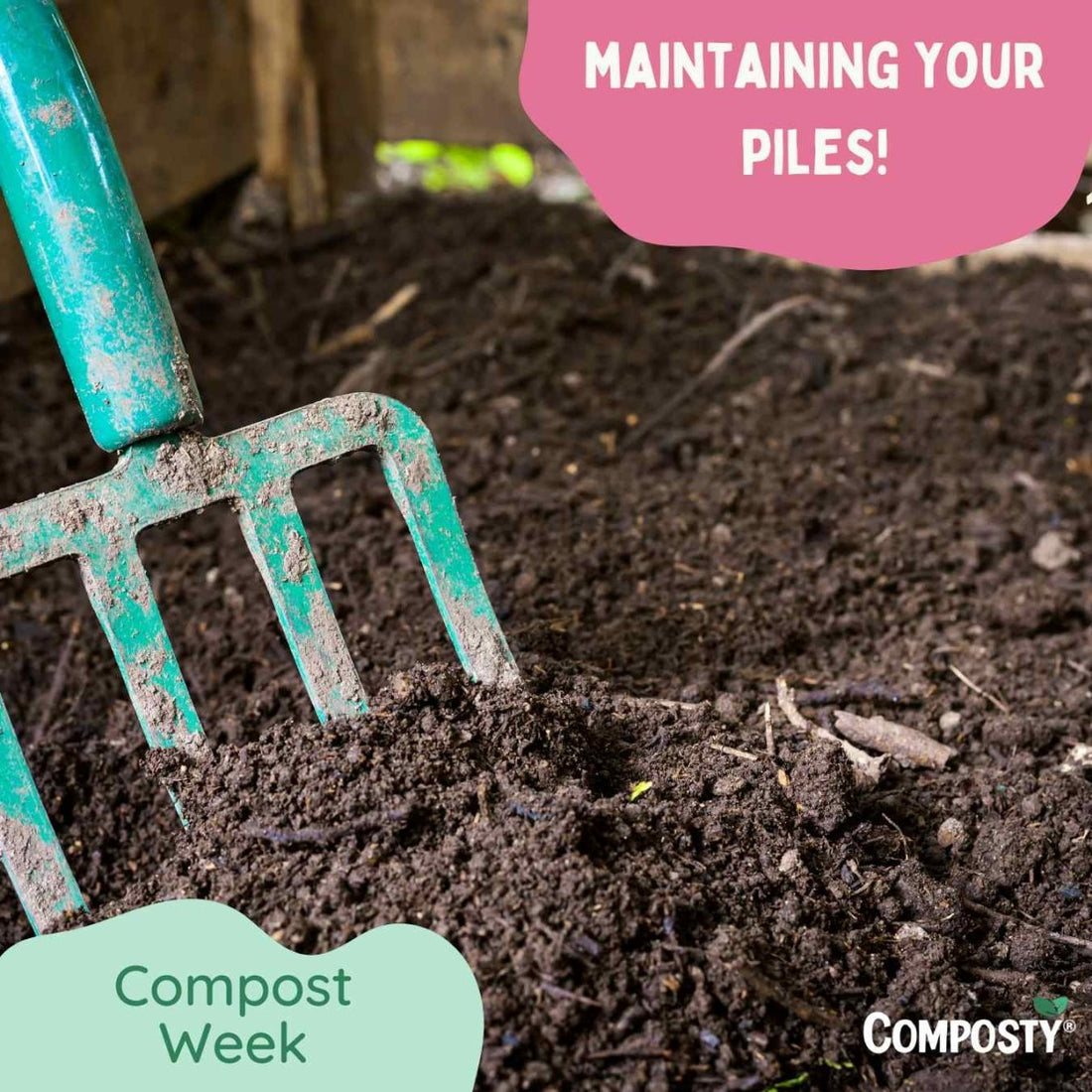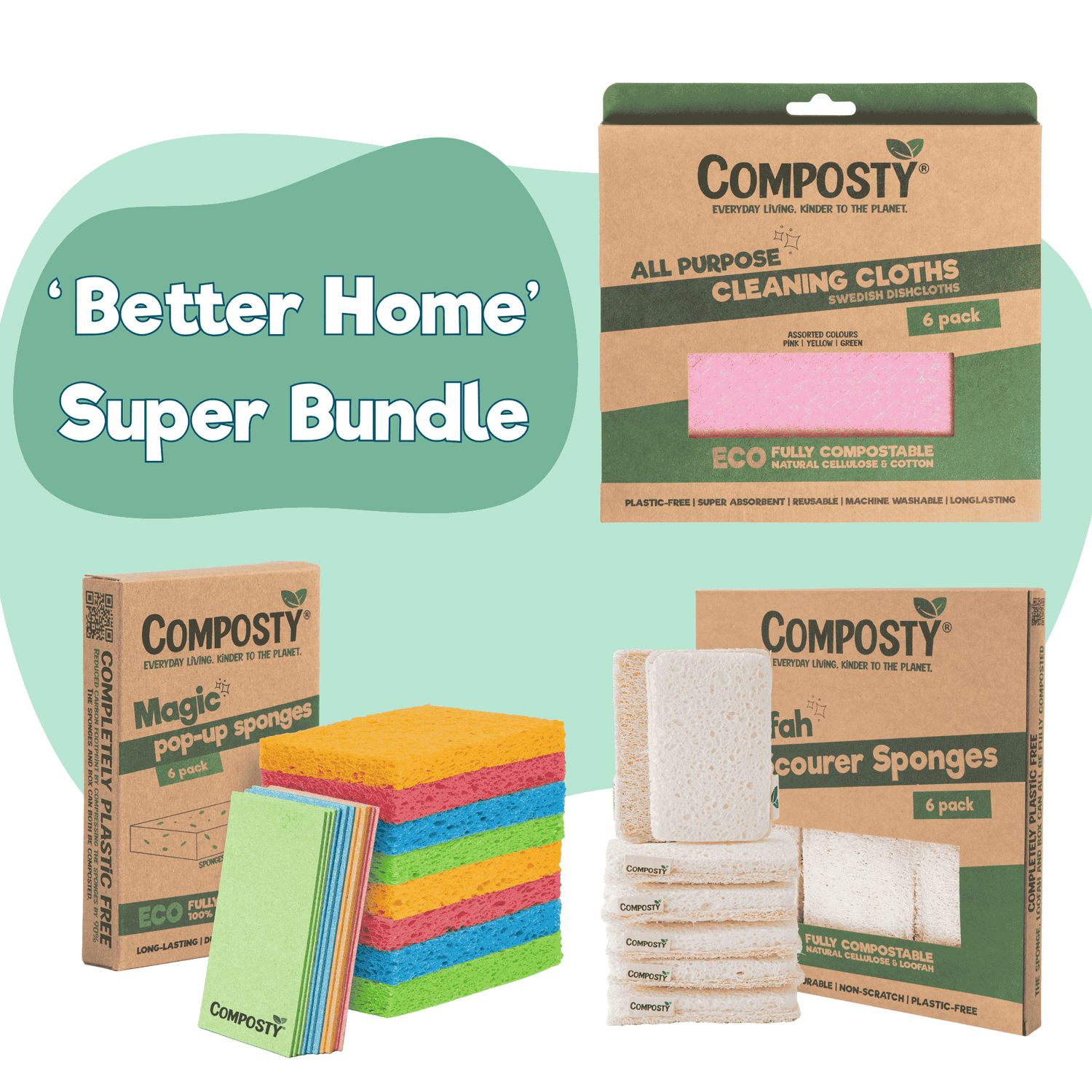
Maintaining Your Compost Bin: Tips and Tricks for a Happy Heap
Hey there, fellow eco-warriors! Welcome back to our blog, where today we're going to have a friendly natter about maintaining your compost bin.
Composting is a brilliant way to reduce waste and create nutrient-rich soil for your garden, but keeping your compost bin in top-notch condition can be a bit of a challenge.
No worries, though - we're here to help! Let's dive into some tips and tricks to make sure your compost heap stays healthy and happy.
-
Balancing the Greens and Browns: The Secret to a Thriving Compost: A Balanced Diet
First things first - let's talk about what goes into your compost bin. The key to a successful compost is the right balance of greens (nitrogen-rich materials) and browns (carbon-rich materials). Greens include fruit and veggie scraps, tea bags, and grass clippings, while browns are items like dry leaves, straw, and paper. Aim for a ratio of roughly 3 parts browns to 1 part greens to keep your compost heap happy.
-
Turning Your Compost: Give Your Heap a Stir to Keep It Aerated
Another essential aspect of maintaining your compost bin is turning the materials regularly. This helps to aerate the heap, which is crucial for the decomposition process. About once a week, give your compost a good stir with a garden fork or spade to make sure everything gets mixed in properly. This will also help to break up any clumps and speed up the decomposition process.
-
Monitoring Moisture Levels: A Hydrated Compost Heap is a Happy Compost Heap
A compost heap needs the right amount of moisture to work effectively. Too much moisture can lead to anaerobic conditions (without oxygen), while too little can slow down the decomposition process. To keep your compost heap in the Goldilocks zone, aim for a moisture level that feels like a wrung-out sponge. If it's too dry, add some water or green materials. If it's too wet, add some browns to soak up the excess moisture.
-
Checking the Temperature: Warm and Cosy: The Ideal Compost Heap Temp
Did you know that a compost heap generates heat as it breaks down? That's right - all those microorganisms working hard in there create warmth, which is essential for decomposition. Ideally, your compost heap should be between 55°C and 70°C. You can check the temperature with a compost thermometer, or by simply sticking your hand into the heap. If it's not warm enough, try turning the heap or adding more greens to kickstart the process.
-
Troubleshooting Common Issues: Don't Panic! Easy Fixes for Compost Problems
Sometimes, compost bins can experience a few hiccups along the way. Here are some common issues and their solutions:
- Smelly compost: If your compost heap is giving off an unpleasant odour, it's likely too wet and anaerobic. Try adding more browns and turning the heap to improve aeration.
- Attracting pests: If your compost bin is attracting unwanted visitors like rodents or insects, make sure to bury food scraps deep within the heap and avoid adding meat or dairy products. You can also use a pest-resistant compost bin with a secure lid.
- Slow decomposition: If your compost isn't breaking down as quickly as you'd like, try turning the heap more frequently, adding more greens, or chopping up materials into smaller pieces before adding them to the bin.
-
Harvesting Your Compost: Reap the Rewards: How to Use Your Fresh, Nutrient-Rich Compost
Once your compost has turned into a dark, crumbly, earthy-smelling substance, it's ready to be harvested and put to good use! This can take anywhere from a few months to a year, depending on the conditions and how well you've maintained your compost heap. Here's how you can use your fresh compost:
- Enrich garden soil: Mix your finished compost into your garden beds to improve soil structure and provide essential nutrients for your plants.
- Top-dress your lawn: Sprinkle a thin layer of compost over your lawn to improve the health of your grass.
- Make compost tea: Steep a handful of compost in a bucket of water for a few days, then use the nutrient-rich "tea" as a liquid fertiliser for your plants.
There you have it, folks! With these tips and tricks, maintaining your compost bin should be a doddle.
Remember, a healthy compost heap requires a balanced diet of greens and browns, regular turning, proper moisture levels, and the right temperature.
Keep an eye on these factors, and you'll be rewarded with a nutrient-rich, earth-friendly compost that your garden will love. Now go forth and compost, eco-warriors!


1 comment
My bins have what I thought were tree roots growing in all three but when I got all the roots out and used some of the compost in a raised bed I found later a pale fibrous root like growth all through the bed. Has anyone there ever come across this? What is it? These are not roots from plants as I hadn’t planted anything in that bed yet. This whatever it is, has taken over the soil and has made it impossible to break the soil up. I’m afraid it is whatever’s in the bins as well. Help!